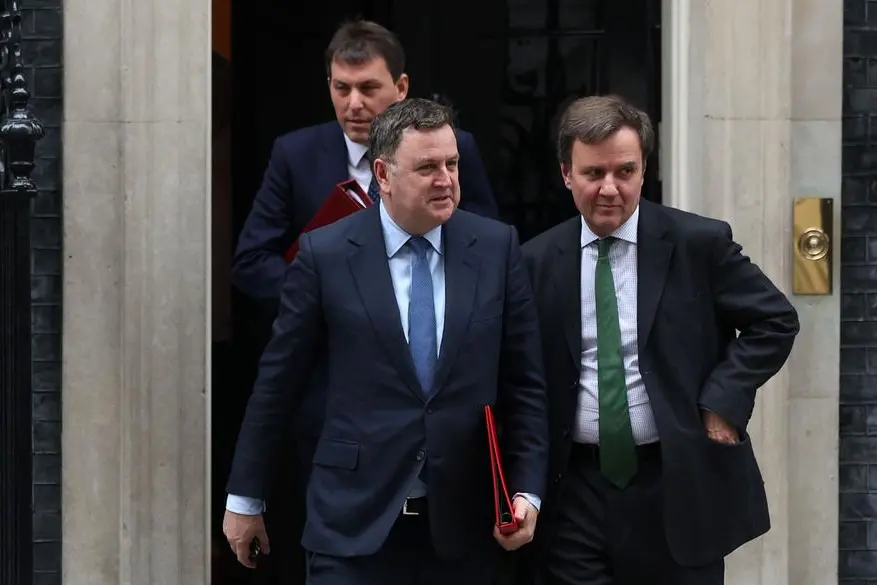PHOTO
As with every stage in Britain's torturous negotiated exit from the European Union, the latest rejig of trade rules for Northern Ireland has thrown up a jumble of new jargon.
Under the new Windsor Framework announced on Monday to modify the Northern Ireland Protocol trucks carrying goods from Great Britain will choose between a green and a red lane.
But what does this mean in practice for British firms shipping goods to Larne and Belfast on ferries from Cairnryan in Scotland or Liverpool in England?
The new system is portrayed slightly differently in explainer documents provided by the European Commission and by the UK government, but the procedure is the same.
According to Brussels, the new framework expands the "Trusted Trader scheme" in the original protocol, whereas Number 10 boasts it has "delivered a new Green Lane".
What this means is that a larger number of firms shipping goods from Great Britain to Northern Ireland will be allowed to register to pass without onerous customs checks.
Under the original post-Brexit deal that was never fully implemented, goods shipped to Northern Ireland were subject to the same checks as those to Ireland or any other part of the EU single market.
The new framework takes into account the province's unique status as a part of a non-EU country, the United Kingdom, but also the EU single market, like neighbouring Ireland.
This means that trusted companies choosing the so-called green lane can take goods for sale or processing in Northern Ireland if they are not to be taken on into EU-member Ireland.
And instead of regular checks on arrivals to prove that this is the case, risk-based tracking methods will be used to reassure Brussels that the shipments won't slip into the EU market.
UK health and safety rules will apply to goods, meaning for example, that Northern Irish shops will be able to more easily stock the same British products as in the rest of the UK.
"Goods staying in the UK will be freed of unnecessary paperwork, checks and duties, with only ordinary commercial information required," the British factsheet says.
The EU version, meanwhile, stresses that the the bloc's market will be protected by EU real-time access to UK customs information technology systems and databases to track shipments.
And there will be, the Commission stresses, "robust authorisation and monitoring of Trusted Trader and Authorised Carrier schemes."
Goods deemed to be heading on to Ireland will have to use the red lane on arrival from Great Britain to Northern Ireland and subject to full EU customs and veterinary health checks.





















